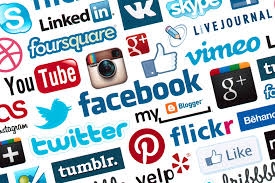News And PoliticsReligion And PrinciplesSocial SciencesAgricultureCommunications And EntertainmentHealth And LifestyleArts And EducationSports And FitnessRelationship And MarriageOthersNigeriapoliticsVehicles And MobilityEngineeringPersonal Care And BeautyScience And TechnologyIT And Computer ScienceFood And Kitchen
profile/5309IMG_20181126_191303.jpg
Ematy1

Threats To Social Media And Digital Platforms
~1.4 mins read
By the end of September, the American social media landscape will undergo a profound transformation, and we cannot yet map this new terrain. President Donald Trump’s executive orders targeting Chinese-owned social media platform TikTok and messaging and payments app WeChat are aimed at confronting China’s tech enabled illiberalism. This is a worthy goal, but his fitful approach undermines this objective.
Instead, the U.S. government should articulate and adhere to a country-neutral framework that looks beyond TikTok, understanding that actions today might (and ought to) set precedents for tomorrow. While Chinese platforms like TikTok currently present the most pressing use cases, they are only the preface to a much longer plot. Without a smarter approach, American policy will fail to successfully confront fast-growing, foreign-owned digital platforms with systemic data and information security vulnerabilities. Prior to any future executive orders aimed at Chinese companies, the president with input from the secretaries of state, commerce, and Treasury should articulate a set of principles-based criterion for this framework. This would help strengthen Washington’s broader efforts to offer an alternative to Beijing’s authoritarian, self-serving vision for the future of the internet.
TikTok has earned Washington’s scrutiny. American policymakers on both sides of the aisle are justifiably disturbed by its data security risks and Communist Party of China-influenced information control and censorship. TikTok’s parent company ByteDance’s vulnerability to Beijing’s cybersecurity and intelligence laws reifies fears of Chinese party-state leverage over companies and the individuals within them with admitted access to data collected from U.S. citizens. This consists of American consumer data collected by TikTok when they use the app. For instance, ByteDance could possibly obtain a teen TikTok user in Idaho’s internet protocol address, GPS location, posted content, images, contacts, keystroke rhythms, other personally identifiable information, and as of November 2019, even the unalterable “media access control†address unique to a device. Further, early concerns over TikTok as a vector for Beijing-sponsored disinformation or interference in U.S. domestic politics will be field-tested this election cycle.
profile/5309IMG_20181126_191303.jpg
Ematy1

Paul The Apostle 2
~1.2 mins read
It has been popularly assumed that Saul changed his name when he became a follower of Jesus Christ, but that is not the case. His Jewish name was "Saul" (Hebrew: ש×ול‎, Modern: Sha'ûl, Tiberian: Å Äʼûl), perhaps after the biblical King Saul, a fellow Benjamite and the first king of Israel. According to the Book of Acts, he was a Roman citizen.[Acts 22:25–29] As such, he also bore the Latin name of "Paul" (essentially a Latin approximation of Saul) – in biblical Greek: Παῦλος (Paulos), and in Latin: Paulus. [Acts 16:37] It was typical for the Jews of that time to have two names: one Hebrew, the other Latin or Greek.
In Acts 13:9, Saul is called "Paul" for the first time on the island of Cyprus – much later than the time of his conversion. The author (Luke) indicates that the names were interchangeable: "Saul, who also is called Paul." He thereafter refers to him as Paul, apparently Paul's preference since he is called Paul in all other Bible books where he is mentioned, including those that he authored. Adopting his Roman name was typical of Paul's missionary style. His method was to put people at their ease and to approach them with his message in a language and style to which they could relate, as in 1 Cor 9:19–23.
The main source for information about Paul's life is the material found in his epistles and in Acts. However, the epistles contain little information about Paul's pre-conversion past. The book of Acts recounts more information but leaves several parts of Paul's life out of its narrative, such as his probable but undocumented execution in Rome. Some scholars believe the book of Acts to also contradict Paul's epistles on multiple accounts, in particular concerning the frequency of Paul's visits to the church in Jerusalem.
Advertisement

Link socials
Matches
Loading...
